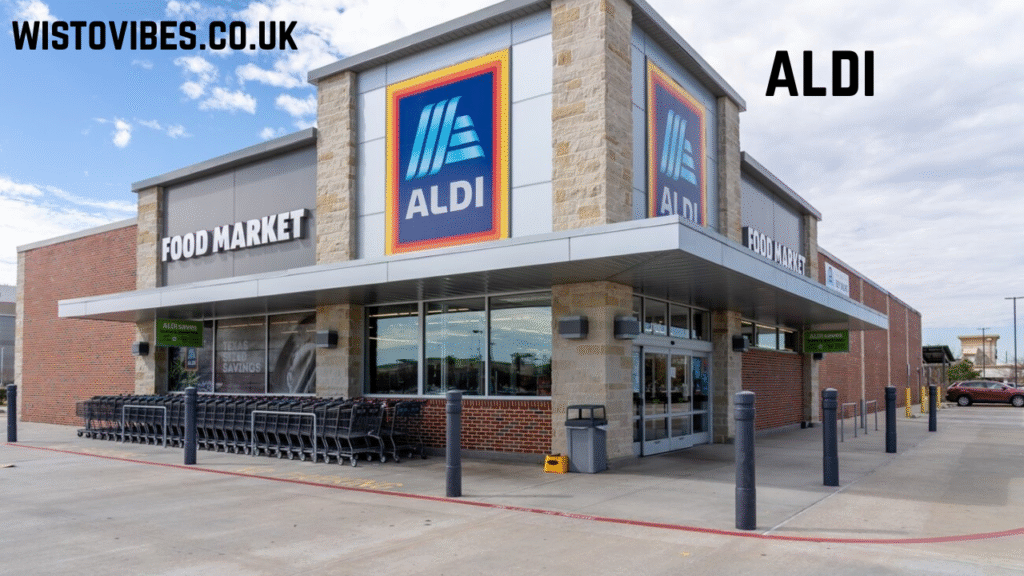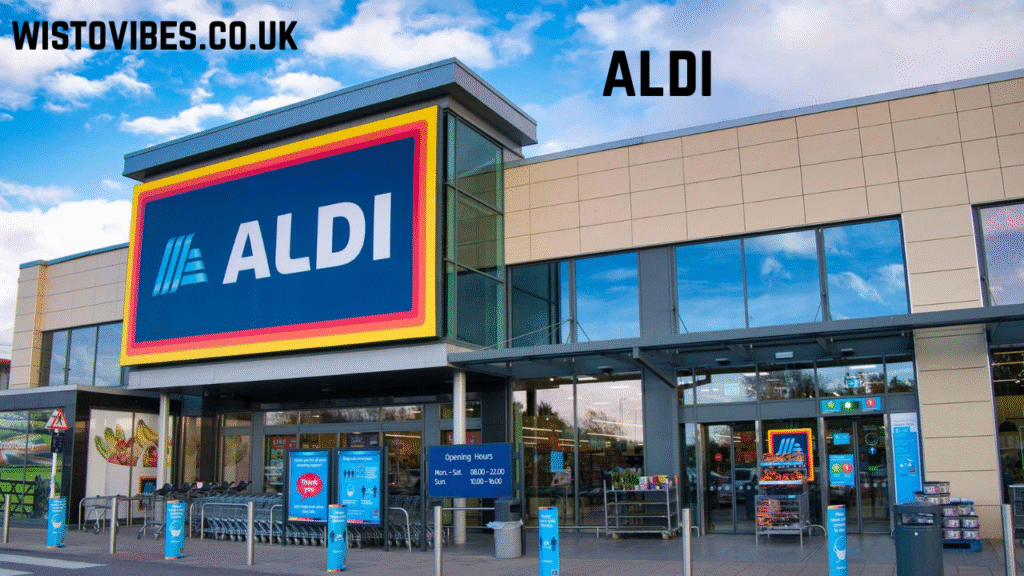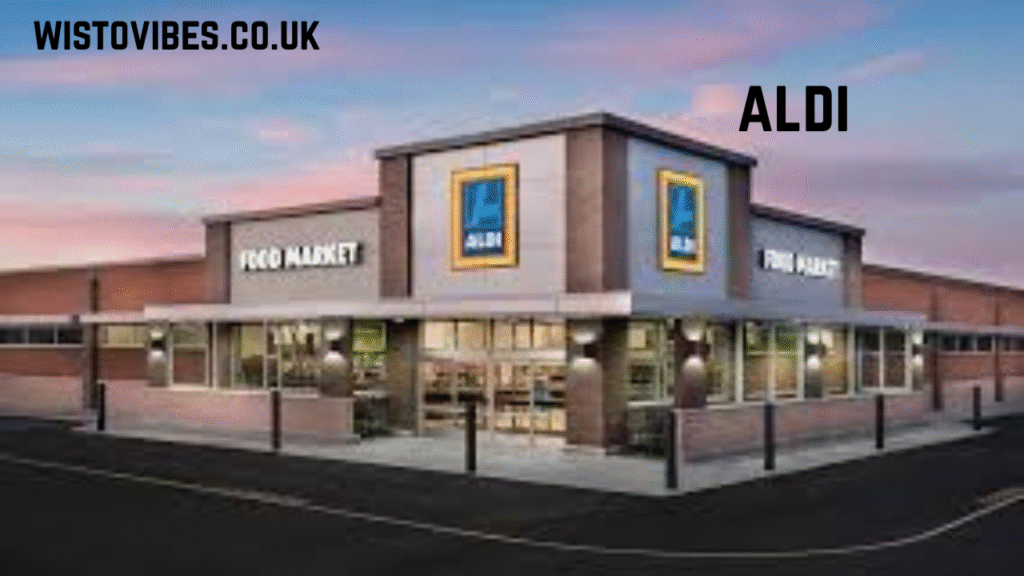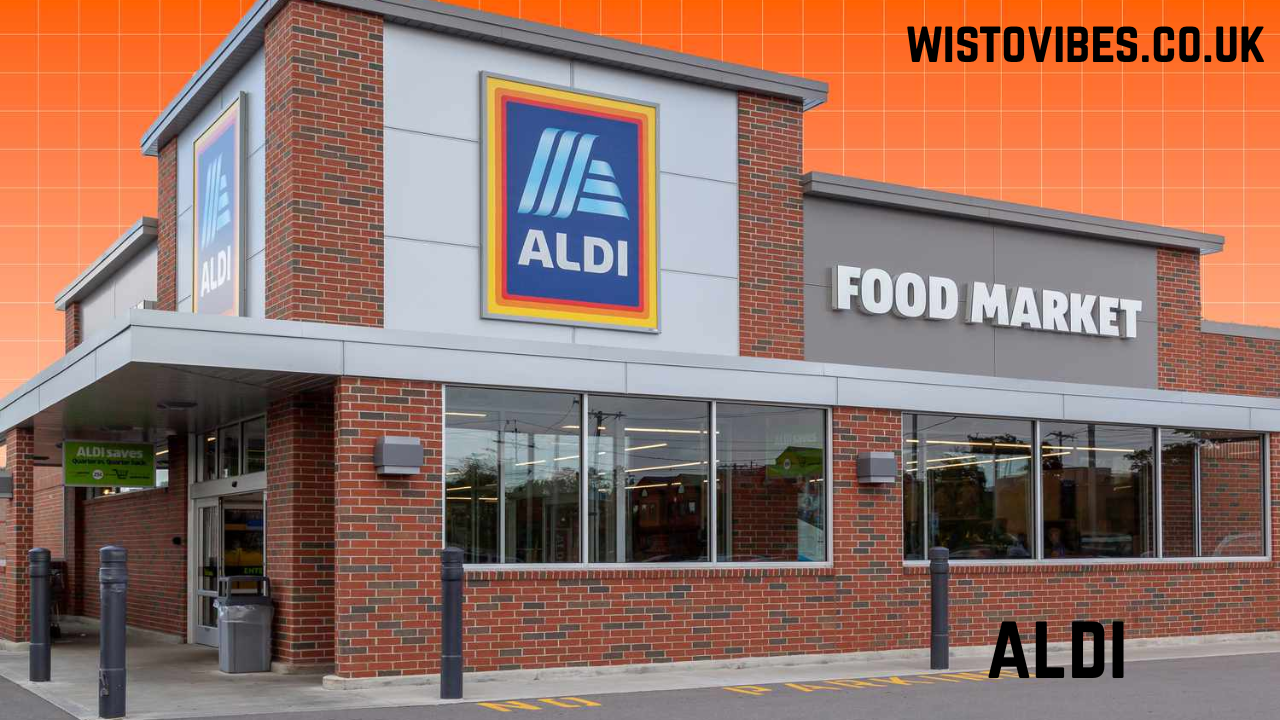Aldi is one of the most well-recognized supermarket chains in the world, known for its cost-effective approach to retail, a unique business model, and its remarkable expansion strategy. Originating in Germany, Aldi has managed to transform the way people shop for groceries by focusing on affordability, efficiency, and quality. Instead of following traditional retail patterns that focus heavily on advertising or flashy store designs, Aldi has built its empire on simplicity, streamlined operations, and a strong commitment to customer satisfaction. This combination has allowed Aldi to not only dominate in Germany but also become a global player in Europe, the United States, Australia, and beyond.
The Origins and History of Aldi

The story of Aldi dates back to 1913 when the Albrecht family opened a small store in Essen, Germany. After World War II, brothers Karl and Theo Albrecht took over the store and introduced an innovative idea—cutting unnecessary costs to keep prices low for customers. Their approach was revolutionary at the time, focusing less on branding and more on efficiency. By 1960, the brothers split the company into two divisions, Aldi Nord and Aldi Süd, each managing different geographic regions. Despite this division, the Aldi name remained consistent with its philosophy of offering affordable groceries without compromising quality. This foundation of frugality and efficiency is still the backbone of Aldi today.
Aldi’s Business Philosophy
What makes Aldi unique is its philosophy of doing more with less. The brand operates on a no-frills concept, meaning it minimizes unnecessary expenses like elaborate store decorations, excessive staff, or heavy advertising campaigns. Instead, Aldi invests in essential aspects such as strong supply chain management, efficient logistics, and high-quality products at affordable prices. The philosophy is also reflected in how Aldi stores operate—most of the products are displayed in shipping boxes to save time and reduce labor costs. This efficiency-driven strategy has proven highly effective, helping Aldi remain competitive against bigger rivals in the retail industry.
Store Layout and Shopping Experience at Aldi

Walking into an Aldi store feels different from traditional supermarkets. The layout is deliberately simple, with fewer aisles and a limited product range. Aldi focuses on offering a carefully selected assortment rather than overwhelming customers with thousands of choices. Products are displayed in a practical, easy-to-access manner, and the checkout process is quick and efficient. Shoppers bag their own groceries, which not only saves money but also speeds up the entire shopping experience. This minimalist approach creates a fast, stress-free environment that appeals to customers looking for value and efficiency.
Aldi’s Product Range and Private Labels
Aldi is known for its limited but carefully curated product selection. Unlike other retailers that carry hundreds of different brands for the same item, Aldi often offers just one or two options—usually under its own private-label brand. This strategy allows Aldi to keep costs low, streamline its supply chain, and maintain consistent quality. Many of Aldi’s private-label products have won awards and recognition for taste and affordability, helping the chain build customer trust. In addition to groceries, Aldi also carries seasonal items, household goods, and unique weekly special buys, which keep customers excited and engaged.
Quality Standards at Aldi
Although Aldi is known for affordability, it has also invested heavily in quality standards. Aldi works closely with suppliers to ensure that its products meet safety and freshness expectations. In many regions, Aldi’s private-label products undergo rigorous testing to meet or exceed industry benchmarks. The brand has also been proactive in adopting sustainable practices, such as sourcing responsibly produced seafood, offering organic products, and reducing packaging waste. These quality initiatives strengthen Aldi’s reputation as not only a low-cost retailer but also a responsible company that cares about customers and the environment.
Aldi’s Expansion into Global Markets

Aldi’s success in Germany eventually led to international expansion, starting with neighboring European countries before moving into larger markets like the United States and Australia. In the United States, Aldi initially faced skepticism but steadily grew by adapting its model to local preferences while staying true to its core principles. Today, Aldi operates thousands of stores across the globe and continues to expand into new territories. Its ability to succeed in diverse markets highlights the universal appeal of its value-driven business strategy.
Aldi in the United States
One of the most impressive stories of Aldi’s global expansion is its presence in the United States. Entering the U.S. market in the 1970s, Aldi took time to gain traction but eventually became one of the fastest-growing grocery chains in the country. Its success was fueled by American consumers looking for affordable, high-quality alternatives to traditional supermarkets. Aldi also acquired Trader Joe’s, another well-known U.S. grocery chain, further expanding its influence in the market. With plans to open hundreds of new stores across the U.S., Aldi is now positioned as a major competitor to giants like Walmart and Kroger.
Aldi’s Success in Australia and the UK
Aldi has also achieved tremendous success in countries like Australia and the United Kingdom. In both regions, it disrupted traditional supermarket structures by offering lower prices, high-quality products, and efficient shopping experiences. In Australia, Aldi has been consistently ranked as one of the top supermarkets, known for its affordability and weekly special buys. In the UK, Aldi has grown into one of the leading grocery retailers, consistently outperforming traditional giants like Tesco and Sainsbury’s in customer satisfaction and value for money. These examples prove Aldi’s adaptability and its ability to reshape retail markets worldwide.
Aldi’s Sustainable Practices
Sustainability has become an increasingly important part of Aldi’s operations. The company has taken steps to reduce plastic packaging, improve energy efficiency in stores, and support sustainable farming practices. Aldi has also committed to expanding its organic and plant-based product lines to meet the demands of environmentally conscious consumers. By balancing affordability with sustainability, Aldi has managed to stay relevant in a retail environment where ethical shopping is becoming more important than ever.
Aldi and Customer Loyalty
One of Aldi’s greatest strengths is its ability to foster customer loyalty. Shoppers appreciate Aldi’s straightforward approach to grocery shopping, where affordability and quality are guaranteed without gimmicks. The limited product selection, efficient store layout, and unique weekly offers create a distinctive shopping experience that keeps customers coming back. Many Aldi shoppers become long-term loyalists because they trust the brand to deliver consistent value, a rare achievement in the highly competitive supermarket industry.
Aldi’s Competitors and Market Challenges
Despite its global success, Aldi faces significant competition from other retail giants like Walmart, Lidl, and traditional supermarkets. Price wars, changing consumer preferences, and the rise of online grocery shopping present ongoing challenges. However, Aldi has managed to stay competitive by sticking to its strengths and innovating where necessary. For instance, while Aldi was slower to adopt e-commerce compared to other retailers, it has begun integrating delivery and pickup options in select markets to cater to modern shopping habits.
Aldi’s Marketing Approach
Aldi takes a unique approach to marketing compared to many other global retailers. Instead of investing heavily in advertising campaigns, Aldi focuses on word-of-mouth promotion, weekly flyers, and social media engagement. Its marketing emphasizes value, quality, and efficiency rather than flashy gimmicks. This minimalist approach aligns with Aldi’s overall philosophy of reducing unnecessary costs while ensuring maximum customer benefit. Interestingly, this strategy has made Aldi’s brand identity stronger, as shoppers associate the company with trustworthiness and simplicity.
Aldi’s Impact on Local Economies
Aldi’s presence in different markets has also had a notable impact on local economies. By introducing low-cost alternatives, Aldi forces competitors to rethink their pricing strategies, often leading to lower prices across the entire market. Additionally, Aldi provides employment opportunities, supports local suppliers, and drives competition that benefits consumers. This ripple effect strengthens Aldi’s role not only as a successful business but also as a key player in shaping retail landscapes wherever it operates.
Aldi’s Adaptation to Digital Trends
While Aldi traditionally focused on brick-and-mortar stores, the rise of digital shopping has pushed it to adapt to new consumer behaviors. In several countries, Aldi has partnered with delivery services to offer online ordering and home delivery. Although Aldi’s digital presence is still less aggressive than other retailers, its cautious approach reflects its philosophy of only investing where efficiency and customer value align. As online grocery shopping continues to grow, Aldi will likely expand its digital strategies while maintaining its cost-effective operations.
Aldi’s Unique Weekly Specials
One of the most distinctive aspects of shopping at Aldi is the famous “Aldi Finds” or weekly specials. These limited-time offers include seasonal items, household products, and even unexpected goods like tools, clothing, or electronics. The unpredictability of these specials creates excitement among customers and often draws them into stores just to see what’s new. This strategy not only increases foot traffic but also enhances the shopping experience, making Aldi more than just a place for groceries.
Aldi’s Role in Shaping Grocery Retail
Over the decades, Aldi has influenced the global retail industry in significant ways. Its focus on efficiency, affordability, and private-label dominance has forced other retailers to adopt similar strategies to remain competitive. In many markets, Aldi’s entry disrupted established supermarket chains, reshaping consumer expectations and industry standards. This role as a retail innovator highlights Aldi’s importance not just as a grocery store but as a trendsetter in the retail world.
Future Outlook for Aldi
Looking ahead, Aldi’s future appears strong, with continuous global expansion and adaptation to changing consumer demands. The company’s ability to balance affordability, quality, and sustainability positions it well for long-term growth. As more consumers seek budget-friendly options without compromising on quality, Aldi’s business model remains highly relevant. Expanding digital capabilities, maintaining sustainable practices, and exploring new markets will likely be Aldi’s focus areas in the coming years, ensuring it remains a dominant force in retail.
Conclusion and FAQs about Aldi
In conclusion, Aldi’s success story is built on simplicity, efficiency, and customer trust. From its humble beginnings in Germany to its status as a global retail powerhouse, Aldi has proven that a business model rooted in affordability and quality can thrive across cultures and markets. By staying true to its philosophy while adapting to modern trends, Aldi continues to redefine what consumers expect from a supermarket.
FAQs
Q1: What makes Aldi different from other supermarkets?
Aldi stands out due to its focus on efficiency, limited product selection, private labels, and affordable prices, all while maintaining high quality.
Q2: Does Aldi only sell its own products?
Most of Aldi’s inventory is made up of private-label brands, but in some markets, it also carries select well-known products.
Q3: How does Aldi keep its prices so low?
Aldi saves money through efficient supply chains, minimal store decorations, reduced staffing needs, and limited advertising, passing savings to customers.
Q4: Is Aldi environmentally conscious?
Yes, Aldi invests in sustainable practices such as reducing plastic use, sourcing responsibly, and offering organic and eco-friendly products.
Q5: Where is Aldi most successful outside of Germany?
Aldi has seen significant success in the United States, the United Kingdom, and Australia, where it has disrupted traditional supermarket models.
Read More: Understanding id mobile Features Benefits and Insights into the Network




